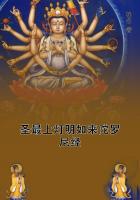Be the charge true or false, these anonymous libels were generally considered as the offspring of this lady: they were industriously scattered by the Duc d'Orleans; and their frequent refutation by the Queen's friends only increased the malignant industry of their inventor.
An event which proved the most serious of all that ever happened to the Queen, and the consequences of which were distinctly foreseen by the Princesse de Lamballe and others of her true friends, was now growing to maturity.
The deposed Court oracle, the Comtesse de Noailles, had been succeeded as literary leader by the Comtesse Diane de Polignac.
She was a favourite of the Comte d'Artois, and was the first lady in attendance upon the Countess, his wife.
(The Comtesse Diane de Polignac had a much better education, and considerably more natural capacity, than her sister-in-law, the Duchess, and the Queen merely disliked her for her prudish affectation. The Comtesse d'Artois grew jealous of the Count's intimacy with the Comtesse Diane. While she considered herself as the only one of the Royal Family likely to be mother of a future sovereign, she was silent, or perhaps too much engrossed by her castles in the air to think of anything but diadems; but when she saw the Queen producing heirs, she grew out of humour at her lost popularity, and began to turn her attention to her husband's Endymionship to this now Diana! When she had made up her mind to get her rival out of her house, she consulted one of the family; but being told that the best means for a wife to keep her husband out of harm's way was to provide him with a domestic occupation for his leisure hours at home, than which nothing could be better than a handmaid under the same roof, she made a merit of necessity and submitted ever after to retain the Comtesse Diane, as she had been prudently advised.
The Comtesse Diane, in consequence, remained in the family even up to the 17th October, 1789, when she left Versailles in company with the De Polignacs and the D'Artois, who all emigrated together from France to Italy and lived at Stria on the Brenta, near Venice, for some time, till the Comtesse d'Artois went to Turin.)The Queen's conduct had always been very cool to her. She deemed her a self-sufficient coquette. However, the Comtesse Diane was a constant attendant at the gay parties which were then the fashion of the Court, though not greatly admired.
The reader will scarcely need to be informed that the event to which I have just alluded is the introduction by the Comtesse Diane of her sister-in-law, the Comtesse Julie de Polignac, to the Queen; and having brought the record up to this point I here once more dismiss my own pen for that of the Princesse de Lamballe.
It will be obvious to every one that I must have been indebted to the conversations of my beloved patroness for most of the sentiments and nearly all the facts I have just been stating; and had the period on which she has written so little as to drive me to the necessity of writing for her been less pregnant with circumstances almost entirely personal to herself, no doubt I should have found more upon that period in her manuscript. But the year of which Her Highness says so little was the year of happiness and exclusive favour; and the Princess was above the vanity of boasting, even privately in the self-confessional of her diary. She resumes her records with her apprehensions; and thus proceeds, describing the introduction of the Comtesse Julie de Polignac, regretting her ascendency over the Queen, and foreseeing its fatal effects.]
"I had been only a twelvemonth in Her Majesty's service, which I believe was the happiest period of both our lives, when, at one of the Court assemblies, the Comtesse Julie de Polignac was first introduced by her sister-in-law, the Comtesse Diane de Polignac, to the Queen.
"She had lived in the country, quite a retired life, and appeared to be more the motherly woman, and the domestic wife, than the ambitious Court lady, or royal sycophant. She was easy of access, and elegantly plain in her dress and deportment.
"Her appearance at Court was as fatal to the Queen as it was propitious to herself!
"She seemed formed by nature to become a royal favourite, unassuming, remarkably complaisant, possessing a refined taste, with a good-natured disposition, not handsome, but well formed, and untainted by haughtiness or pomposity.
"It would appear, from the effect her introduction had on the Queen, that her domestic virtues were written in her countenance; for she became a royal favourite before she had time to become a candidate for royal favour.
"The Queen's sudden attachment to the Comtesse Julie produced no alteration in my conduct, while I saw nothing extraordinary to alarm me for the consequences of any particular marked partiality, by which the character and popularity of Her Majesty might be endangered.
"But, seeing the progress this lady made in the feelings of the Queen's enemies, it became my duty, from the situation I held, to caution Her Majesty against the risks she ran in ****** her favourites friends; for it was very soon apparent how highly the Court disapproved of this intimacy and partiality: and the same feeling soon found its way to the many-headed monster, the people, who only saw the favourite without considering the charge she held. Scarcely had she felt the warm rays of royal favour, when the chilling blasts of envy and malice began to nip it in the bud of all its promised bliss. Even long before she touched the pinnacle of her grandeur as governess of the royal children the blackest calumny began to show itself in prints, caricatures, songs, and pamphlets of every description.















